Members of the National Assembly acknowledged the determination of the Party, the State, and the National Assembly in overcoming difficulties and promoting sustainable socio -economic development, but noted that much remains to be done to create a solid foundation for long-term goals.

On October 26th, the program continues. At its 8th session, the National Assembly dedicated an entire working day to group discussions on the socio-economic situation in 2024 and the orientation plan for 2025.
Continue to promote the development of transportation infrastructure.
Speaking at the discussion session in Group 8, Minister of Transport and National Assembly representative Nguyen Van Thang of Dien Bien Province acknowledged the outstanding efforts of the Government, ministries, sectors, and businesses in achieving the set goals. socio-economic development.
He emphasized that achieving all 15 targets, controlling inflation effectively, and maintaining stable macroeconomic indicators are remarkable accomplishments, especially given the many challenges.
The Minister also acknowledged that, although the economy is still facing difficulties, such as businesses being affected by disruptions in global supply chains, the fact that budget revenue growth exceeded projections is a bright spot.
He expressed optimism: The country is on a path of comprehensive development, offering high expectations for a strong recovery in the coming years.

As the Minister of Transport, delegate Nguyen Van Thang provided an update on the project. high-speed rail North-south axis. According to him, this project will be submitted to the National Assembly for consideration and approval of the investment policy, connecting Hanoi with Ho Chi Minh City via strategic railway lines such as Lang Son-Hanoi, Hanoi-Ho Chi Minh City, and Ho Chi Minh City-Can Tho.
With the existing 1m gauge railway currently operating on the Lang Son-Hanoi section, and an additional 1.435m gauge option, the Government will soon submit a proposal to the National Assembly for further upgrading.
Recently, Party and State leaders paid an official visit to China. Leaders of the two countries discussed strengthening connectivity between the two countries by investing in three railway lines: Lao Cai-Hanoi-Hai Phong; Lang Son-Hanoi; and Hanoi-Hai Phong-Mong Cai.
The Ministry of Transport is currently responsible for implementing these three lines, including the Lang Son-Hanoi line, which is part of the North-South railway line. It is proposed that this line be operated in standard gauge for both passengers and freight, with a speed of approximately 220 km/hour.
For the 174km Ho Chi Minh City-Can Tho line, the Ministry has completed the pre-feasibility report and is in the process of preparing to submit it to the National Assembly. With a total estimated cost of 19.8 billion USD (equivalent to 220 trillion VND), this railway line will operate in standard gauge, with a speed of up to 200km/hour, shortening travel time from Ho Chi Minh City to the western provinces to approximately one hour.
Regarding the upgrade of the two-lane expressway, Representative Thang stated that the Government has been very decisive in this term. He personally believes that the previous decision by the National Assembly and the Government to implement a two-lane system was reasonable, because many routes previously had low traffic volumes, and after a period of development, the need for upgrading is inevitable.
The Ministry of Transport is upgrading 2-lane routes to 4-lane routes and some limited 4-lane routes to full and larger ones. The Ministry is currently working aggressively, and investment is underway on some routes.
Minister Thang also emphasized that, in parallel with upgrading infrastructure, solutions are needed to improve traffic culture awareness in order to minimize accidents.
He noted that good transportation infrastructure alone is not enough; the awareness of road users also plays a crucial role in creating safety and civility.
Avoid the risk of wasting national resources.

Participating in the discussion, delegate Ta Thi Yen, from the Dien Bien Provincial National Assembly Delegation, emphasized that the Vietnamese economy has achieved many positive results over the past year, and proposed solutions to consolidate macroeconomic stability, address challenges in digital transformation, the semiconductor industry, and human resource development.
Delegates expressed their agreement with the Government's report and the National Assembly's Economic Committee, particularly appreciating the efforts to restore the economy after the Covid-19 pandemic. Many socio-economic development indicators have met and exceeded the plan, affirming the correct direction of the Party and the State, creating a foundation for the five-year goals (2021-2026).
Ms. Yen emphasized that the three breakthroughs in the spirit of the Resolution of the 13th National Congress on institutions, infrastructure, and human resource quality have seen positive changes.
However, the delegate also noted that the international situation remains volatile and unpredictable, especially regional conflicts and geopolitical competition, which could affect Vietnam's open economy. Therefore, she emphasized the importance of accurately forecasting the situation and having appropriate response plans.
The Economic Committee's report highlighted challenges in macroeconomic stability due to the economy's continued reliance on exports and public investment. New growth drivers such as digital transformation, energy transition, and the semiconductor industry will take time to become effective.
Representative Yen proposed continuing to assess the causes and solutions to these shortcomings so that the economy can achieve stronger breakthroughs.
Referring to the low disbursement rate of public investment funds in many localities, the female delegate expressed concern about the risk of wasting national resources. "Having money but not being able to spend it, while this is taxpayers' money and government loans, is a huge waste," she emphasized.
Ms. Yen cited the viewpoint expressed in General Secretary To Lam's article "Combating Waste" dated October 16th, emphasizing that the slow implementation of important plans such as the National Power Development Plan for the period 2021-2030 could have repercussions for energy security.
She pointed out that a number of renewable energy projects are still facing procedural obstacles and have not yet been put into operation, causing a significant waste of social financial resources, affecting the speed and scale of the economy, and need to be properly assessed in order to find solutions.
Business development in a competitive market environment.
Furthermore, Representative Yen pointed out that the percentage of businesses withdrawing from the market in the first nine months of 2024 accounted for 89.7% of the total number of new and re-entering businesses. She emphasized the need for a thorough assessment of the causes, including issues related to planning and infrastructure development in the midland and mountainous regions.
From a business perspective, delegate Tran Thi Hien (Ha Nam) offered her opinion on factors affecting business operations, such as low market demand, high interest rates, and rising input material prices.

Despite the increase in the number of businesses, Ms. Hien believes that more attention should be paid to the quality of businesses, rather than just focusing on quantity. She noted: "With nearly 164,000 businesses withdrawing from the market in the first nine months of 2024, the Government needs to have more specific support solutions."
Regarding human resource training and social insurance, delegate Hien emphasized the need to increase the proportion of trained workers to meet the demands of digital transformation and high-tech industries, while also promoting the responsibility of businesses in providing vocational training for their employees.
Representative Hoang Van Cuong (Hanoi) argued that the Vietnamese economy is heavily dependent on FDI enterprises and external factors. To achieve sustainable recovery, he emphasized the need to develop solutions to increase the capacity of key domestic enterprises.

Furthermore, the rapid development of cross-border e-commerce, such as foreign marketplaces offering low prices, could negatively impact domestic goods. Mr. Cuong suggested the need for policies to control the origin of goods and support the development of domestic e-commerce platforms.
In addition, consideration should be given to strengthening the capacity of domestic e-commerce platforms to prevent creating conditions for foreign goods to flood the market.
"Over 95% of e-commerce activities are conducted on foreign platforms; therefore, policies are needed to develop domestic platforms. I believe that, in conjunction with controlling the origin of goods, policies to develop domestic trading platforms are necessary to foster the development of the digital economy," Representative Cuong stated.
Source







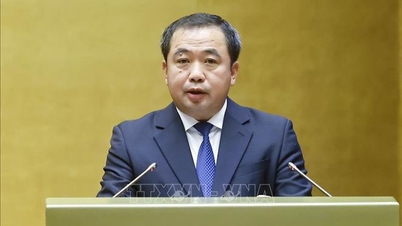

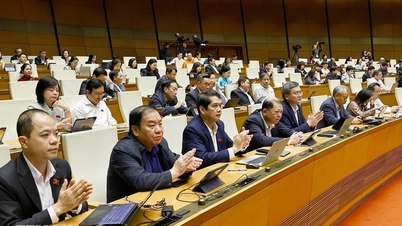

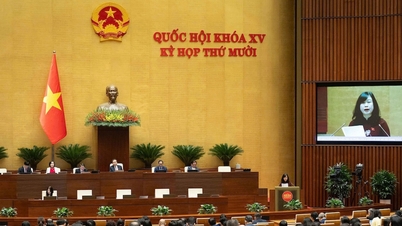

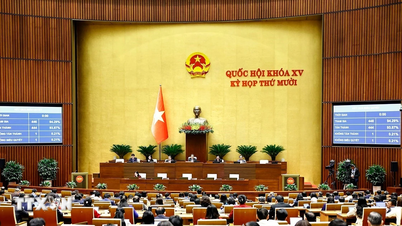

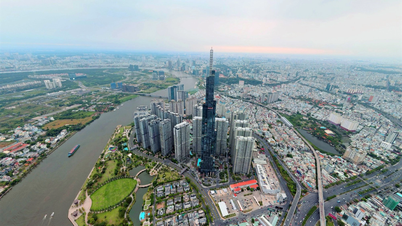

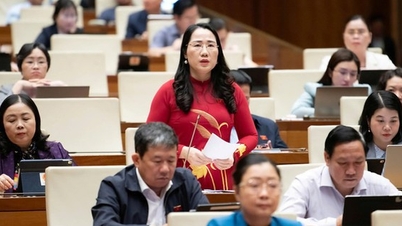












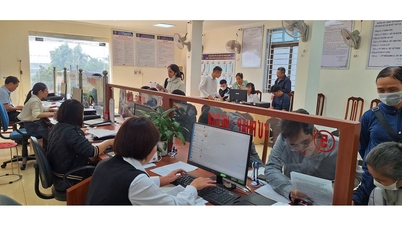
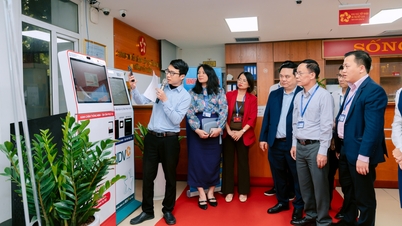

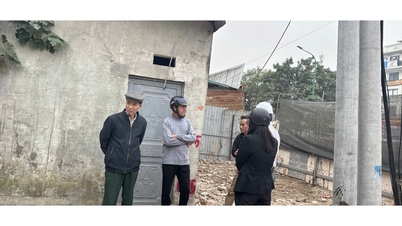























































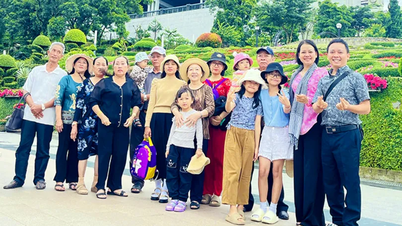


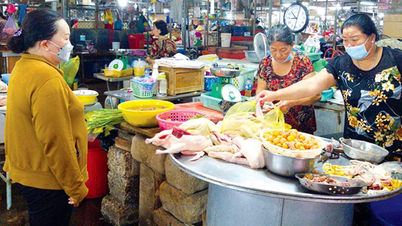
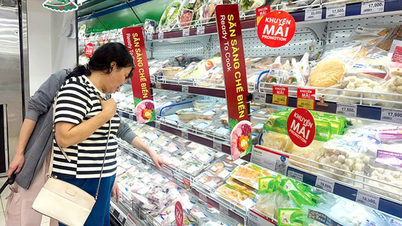


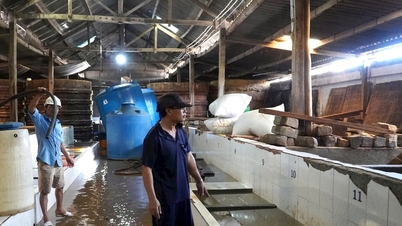













Comment (0)